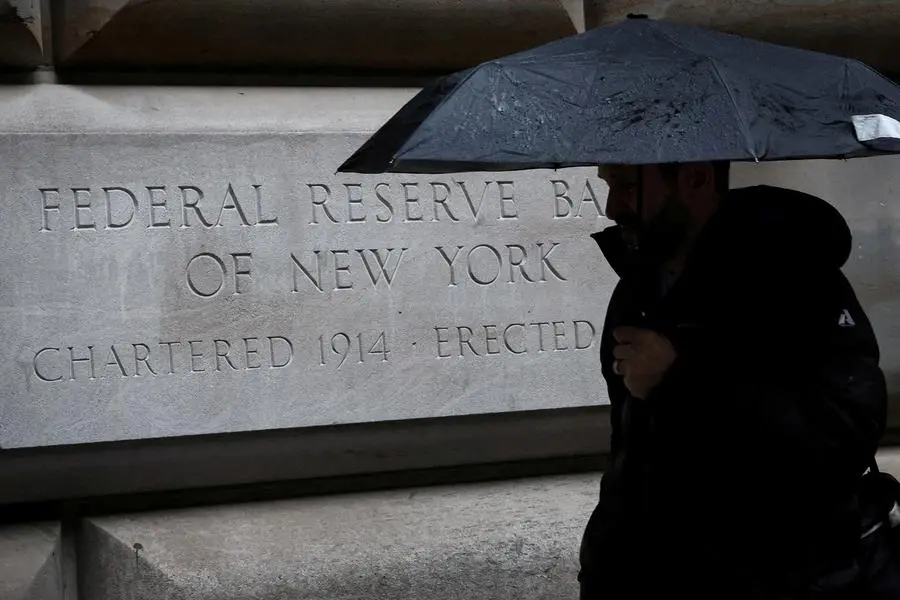PHOTO
Stocks gained ground and the dollar remained subdued on Thursday after Federal Reserve minutes signalled U.S. interest rate cuts were set to begin in a few weeks' time.
The minutes said the "vast majority" of policymakers felt that, if data came in as expected, a September cut was likely to be appropriate - validating market expectations.
Stocks, after a phenomenal rebound from early-month lows plumbed after a bout of volatility, strove for gains.
European shares gained 0.5%, helped by retail stocks, after a subdued trading session in Asia. They added ground to initial gains after data for the euro zone showed surprising strength in business activity this month.
U.S. stock index futures were marginally higher.
Oil prices steadied in European morning hours after falling for a fifth straight day as investors earlier worried about the global demand outlook before a decline in U.S. fuel inventories provided a floor.
Brent crude futures gained 0.4% to $76.36 a barrel, still near the year's low after losing nearly 6% in August so far.
Euro zone bond yields
edged upwards
after the euro zone business activity survey, which potentially weakens expectations for two more rate cuts from the European Central Bank this year.
U.S. PMI and initial jobless claims figures are due later in the day.
"What we have seen since yesterday is just a confirmation of broad expectations of Fed rate cuts in September," said Sandrine Perret, multi-asset portfolio manager at Unigestion.
Earlier, MSCI's broadest index of Asia-Pacific shares outside Japan gained 0.3%.
DOLLAR DOWNTREND
The dollar index, was little changed at 101.21. It dipped to 100.92 overnight for the first time this year.
Lower U.S. rates would give central banks around the world room to move. On Thursday the Bank of Korea opened the door to a cut in October, while Bank Indonesia has lined up cuts in the fourth quarter.
Still, rates and currency markets see a U.S. easing cycle as having further to run than other countries.
Interest rate futures markets have fully priced in a 25-basis-point cut from the Fed next month, with a 1/3 chance of a 50-bp cut. They project 222 bps of U.S. easing by the end of 2025, against 163 bps for Europe.
The euro, which has made strong gains this month, fell 0.1% to $1.1128.
The single currency fell after weaker-than-expected PMI data from Germany suggested that its economy, - which unexpectedly contracted by 0.1% in the second quarter - hasn't picked up pace going into the second half of the year.
In Britain, the pound rose to a new 13-month high on the dollar and also strengthened against the euro after British business activity data showed steady growth momentum going into the second half of 2024.
The pound rose 0.3% to as high as $1.3129, its highest since July 2023.
Ten-year Treasury yields were broadly steady at 3.80% while two-year yields held at 3.93%.
Investors said the dollar was facing a downtrend.
"The unequivocal signal from the (Fed) minutes has been the catalyst for the latest leg down in the U.S. dollar," said National Australia Bank's head of currency strategy, Ray Attrill.
"It is likely that the break above $1.30 on cable looks sustainable," he said, using a nickname for the sterling/dollar pair. "And similarly for the euro ... we're talking about potentially a $1.10-$1.15 range in coming weeks."
(Reporting by Tom Wilson in London and Tom Westbrook in Singapore; Editing by Shri Navaratnam, Tom Hogue, Christina Fincher and Chizu Nomiyama)




















